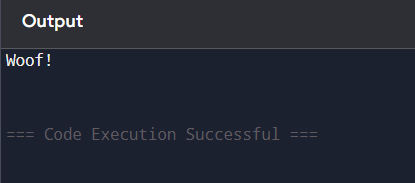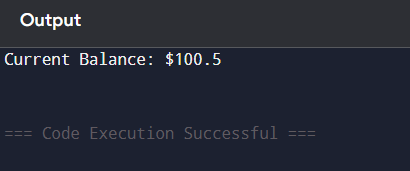C++ OOP or Object-Oriented Programming is the heart of modern software development, and C++ programming stands as one of its most powerful champions. By combining logical structure with real-world solving, C++ OOP transforms abstract ideas into efficient, modular, and scalable solutions.
Whether you are building dynamic applications or managing complex systems, C++ OOPs offers tools to turn possibilities into realities. Let us go through the article to learn more about C++ OOP.
What are C++ OOPs Exactly?
Object-oriented programming (OOP) is a programming paradigm that organizes software design around objects rather than functions or logic. An object is a self-contained entity that encapsulates data and behavior, often representing a real-world concept such as a person, car, or bank account. OOP models the relationships between these objects and leverages their interactions to build complex systems.
C++’s blend of OOP and procedural paradigms offers flexibility, making it a powerful choice for building systems ranging from simple applications to highly complex, performance-intensive software. Its strong emphasis on OOP principles ensures code that is modular, maintainable, and closer to real-world problem representation.
Key Facts about C++ OOPs
- Object Oriented Programming makes the code faster and easier to execute
- It provides a clear and simple structure to the entire program.
- It makes the entire code reusable which is easy to maintain, modify and debug.
- C++ Oops help implement “Don’t Repeat Yourself” (DRY) principles in developing the entire application.
Features of OOPs in C++
Apart from procedural programming, Object-oriented programming comes with several benefits. The features of Object-oriented programming (OOP) in C++ are like a toolkit that lets us organize our ideas into neat little packages called objects. Think of these features as the rules and tools that help us build software that is both flexible and closer to how we understand things in the real world.
With C++, the features below make coding feel like intuitive and help us write software that is easier to understand, debug, and extend. They take care of messy details, allow us to work on the big picture, and give us a way to create programs that mimic the real world. Now, let us see how it breaks down:
Classes and Objects in C++
Classes are the blueprints, and objects are the real things that we create from them. If a class is a recipe for cookies, an object is the actual cookie on the plate.
In C++, a class defines the properties and behaviors that an object will have. An object is our way of turning those ideas into something tangible in our program.
C++ OOPs Examples:
Check some of the important examples of C++ programming language in the table below.
| class Dog {
public: string breed; void bark() { cout << “Woof!” << endl; } }; int main() { Dog myDog; // Object myDog.breed = “Golden Retriever”; myDog.bark(); // Calls the bark function return 0; } |

Encapsulation: The Secret Keeper
Encapsulation is like putting the valuables in a safe. We keep the important stuff protected and only give out keys or functions to access it. In C++, we group our data and the code that uses it together in one place, which is the class. Private data cannot be accessed directly but only through public methods, ensuring control and safety.
OOP concept in C++ with examples:
| class BankAccount {
private: double balance; // Secret public: void deposit(double amount) { balance += amount; } double getBalance() { return balance; } }; |

Inheritance: The Family Tree
Inheritance is like passing down family traits. If the parents have blue eyes, there is a good chance of the child having that tool In C++, a child class inherits properties and methods from its parent. It helps in reusing the code instead of rewriting it over and over.
C++ OOP with examples:
| class Vehicle {
public: void start() { cout << “Vehicle starting…” << endl; } }; class Car : public Vehicle { // Car inherits from Vehicle public: void honk() { cout << “Car honking!” << endl; } }; |
Polymorphism: One Name, Many Forms
Polymorphism is like a magic trick where the same action looks different depending on the context. For instance, the word “run” could mean running a race or running a program.
In C++, function overloading and runtime polymorphism are done using polymorphism. Function overloading refers to the same function name and different parameters. Runtime polymorphism is when classes can have different versions of the same function using virtual methods.
C++ OOPs with examples:
| class Animal {
public: virtual void speak() { cout << “Animal Sound” << endl; } virtual ~Animal() {} // Virtual destructor for proper cleanup }; class Dog : public Animal { public: void speak() override { // Corrected method signature and case cout << “Woof!” << endl; } }; int main() { Animal* animal = new Dog(); // Polymorphism example animal->speak(); // Calls Dog’s speak method delete animal; // Proper cleanup return 0; } |
Abstraction: Hiding the Messy Details
Abstraction is like driving a car. We don’t need to know how the engine works, we just use the steering wheel and pedals. Similarly, in C++, we can show only the necessary details and hide the complexities.
In C++, we use abstract classes or interfaces to focus on the object’s capabilities without worrying about how it does them.
OOP concept in C++ with examples:
| class Shape {
public: virtual void draw() = 0; // Pure virtual function }; class Circle: public Shape { public: void draw() { cout << “Drawing a circle!” << endl; } }; |
Dynamic Binding: Deciding at the Last Moment
Sometimes, we want the program to decide what function to use while it is running. Dynamic binding ensures that the right version of a function is called, even if we do not know the exact object type until runtime.
Modularity: Breaking it Down
C++ Oops, let us break our code into small, reusable pieces. Each class does one thing; together, they make the program work like a well-oiled machine.
Benefits of OOP in C++
The benefits of OOP in C++ make it a powerful paradigm for building both simple and complex applications. From organizing code and enhancing security to enabling reusability and scalability, OOP helps developers write clean, maintainable, and future-proof software. It is like having a well-organized toolbox where each tool has its place, purpose, and ability to work seamlessly with others.
Some of the major benefits consist of:
- Modularity and Code Organization: OOP allows us to structure our program into classes and objects, making the code easier to understand and manage. Each class represents a specific concept or functionality, breaking down the complexity of large programs into smaller, manageable pieces.
- Reusability through Inheritance: With inheritance, we can reuse existing code by creating new classes based on previously written ones. This reduces redundancy, saves development time, and ensures consistency.
- Encapsulation for Data Security: Encapsulation hides the internal details of objects and only exposes necessary parts through public methods. This ensures that data is accessed and modified in a controlled way, reducing the risk of accidental interference or misuse.
- Ease of Maintaining and Scalability: OOP makes it easier to maintain and scale the software. When requirements change, we can modify or extend specific parts of the program without affecting the entire system. This modular approach also simplifies debugging and testing.
- Real-World Problem Modeling: OOP is designed to model real-world entities naturally, making it easier for developers to conceptualize and solve problems. Objects represent real-world items with attributes and behaviors or functions.
- Easier Debugging and Error Handling: By isolating functionality into separate classes, OOP makes it simpler to identify and fix bugs. Errors are usually contained within a specific class, reducing their impact on the overall system.
Learn to Decode DSA with C++ Programming
Become a certified C++ developer with PW Skills Self Paced Online program Decode DSA with C++. Get in-depth tutorials, practice exercises, module-level assignments, real world projects, and more within this course.
Learn from an experienced mentor and get certified after completing the course tutorials, exercises, and projects. Build your job portfolio and experience a wide range of opportunities as a C++ developer with pwskills.com
C++ OOPs FAQs
Q1. What is OOP in C++?
Ans. C++’s blend of OOP and procedural paradigms offers flexibility, making it a powerful choice for building systems ranging from simple applications to highly complex, performance-intensive software. Its strong emphasis on OOP principles ensures code that is modular, maintainable, and closer to real-world problem representation.
Q2. What is Object-oriented programming (OOP)?
Ans. Object-oriented programming (OOP) is a programming paradigm that organizes software design around objects rather than functions or logic.
Q3. What are the benefits of OOP in C++?
Ans. From organizing code and enhancing security to enabling reusability and scalability, OOP helps developers write clean, maintainable, and future-proof software.
Q4. What is a Class in OOPs?
Ans: A class is a blueprint of the user defined data type having its data members and methods. Objects are a unique instance of class used in the OOPs.

